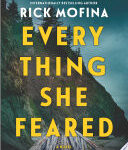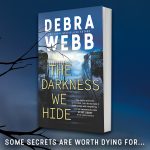Please help me give a warm welcome to Fred Venturini, author of Blank Slate Press’ The Samaritan.
I’ve read, reviewed, and absolutely loved this book, in which we follow Dale from junior high through early adulthood, discovering what it’s like to be lonely, experience loss, first love, and most importantly, what life is like if you can regenerate parts of your body. You’d think that would be totally cool, and for the most part it is. But there are definitely some disadvantages to this gift.
 Dale grows up in small town Illinois, just like the author and I did. I’m happy to give you a guest post written by Fred, giving you an intimate look at what life was like growing up in a small town and how it contrasts with the big city.
Dale grows up in small town Illinois, just like the author and I did. I’m happy to give you a guest post written by Fred, giving you an intimate look at what life was like growing up in a small town and how it contrasts with the big city.***************************************************************
I spent the early part of my childhood playing in big piles of rocks and sawdust. On one end of town, there were piles of gravel and sand, stored on a vacant lot, ready for roadwork that never seemed to get done. Mountains to a kid—big enough to sled on in the winter. In the summer, our clothes were dusty from playing King of the Mountain, the sweat mixing in with rock chalk, covering us with a gray paste.
On the other side of town, different piles—mounds of forgotten sawdust, clumped hard and tight from rain and neglect, abandoned by a logging business that had left town for greener pastures. You could wrestle and jump in the sawdust; it was like a corkboard playhouse. You could tear off chunks of your surroundings, big clumps of rotted sawdust, and throw them like Nerf balls.
When the piles weren’t enough to keep us busy, we’d ride rusty bicycles along the old railroad tracks—which didn’t have tracks anymore, they were just a vein of rock leading from one small town to a slightly larger one, a remnant of the bustle the town might have known those many years ago—a bustle we didn’t care about and never considered. Creeks and trees and holes and sticks waited to be exploited for entertainment purposes.
Why am I telling you all this? Setting. Notice that I didn’t mention the clouds or temperature in creating the setting of my early youth in the paragraphs above. I have read quite a few fiction workshop pieces (and quite a few published novels as well) that describe the clouds and the temperature (albeit, in startling and sometimes beautiful ways) and that’s about all you get for setting. I recall a funny George Carlin bit where he specifically complains about not caring what the clouds look like in fiction. I sort of agree. If I find myself describing clouds, I rein myself in immediately and rethink where a character is. I mean, if my characters care that much about the clouds, are they that interesting? Do you think that in the place I described above, would the clouds offer more character, or be more memorable, than those piles of stone and sawdust?
My novel is set in a variety of Southern Illinois towns. Small ones. Places like Vernon Hills and Grayson (which are made up names, but like all decent made up names, they probably exist somewhere). Places not unlike the small town in which I grew up. I’ve always enjoyed the big town, small town contrast. I’ve long been fascinated with Hollywood’s take on it in every single movie, which is to say, small town = good, big city = bad. I don’t want to pick sides on that one, but I do want to reveal how each place can do its fair share of damage in its own unique way.
Consider that in a big city, you may feel the physical threat of random violence happening in school or on the streets. You may be in a class of hundreds, and be easily forgotten, or worse, not noticed at all. The threat of invisibility is fearsome.
But what may be worse is the visibility of a small town, where embarrassing news can spread instantly, and often did, even before the Twitter age. How about everyone knowing your name and your business, your every success and failure magnified. How about that small town violence, which is often chivalrous—an old fashioned fistfight after school, sometimes with a hug right after it. But that small town violence can sometimes fester and grow, and the choice of targets is very, very small. Collateral damage is imminent. Violence in a big city may be random; violence in a small town is most likely personal. Big city violence is a gunshot soon forgotten; a killing in a small town is like a nuke going off, leaving a radioactive stain that never washes away.
I could veer into a rambling, writing essay about setting, but I’ll resist. I simply state that setting is more than just clouds and temperature, it’s a community, it’s a time, it’s a detail that only exists right there. It lords over the characters, impacting who they are and what they want to be. And in The Samaritan, I wanted to explore more than just how the characters dealt with strange and tragic circumstances; I wanted to explore small town, big city contrast, and how each place can shape and break the dreams of youth.
Setting, when done well, leaves an incredible impression on a reader. I’m interested to know—how important is setting to you, and which ones leap out in your memory? And the invitation is open . . . come on over, we’ll head to the rock piles and have ourselves a good time. At night, you can sit up there, higher than the streetlights (the ones that aren’t burned out anyway). Maybe crack open an ice cold beer and enjoy the night sky unmarred by smog. And if you listen close, you can hear what’s going on behind closed doors . . . and if you can hear it from the top of the pile, I promise you, it won’t be a good thing. But I know those parts of those towns. You’ll be safe.
I promise.
*****************************************************************
A big thank you to Fred for the insightful post. This post is seriously vivid since we just visited the in-laws out in the lovely country of Central Illinois. I wonder if there will be any takers of Fred’s offer? I can guarantee that the night sky is breathtaking once you get outside of the cities and out into the country. Hmm, Pushy and I only live a few short hours away…
You can find a copy of The Samaritan for yourself in several places: Goodreads, Amazon-Hardcover, Kindle, Barnes and Noble- Nookbook, Hardcover
TLC Book tours and Blank Slate Press are offering a copy of The Samaritan to one lucky commenter on this post. The contest is open to residents of the United States and Canada for a paper copy. If you live outside of that area, you can win a pdf copy instead of a hard copy. All you have to do to enter is leave a comment below and tell us if you grew up in a sleepy small town or a bustling metropolis. Don’t forget to include your email address too so I can contact you if you’re the winner. The contest ends at 11:59 pm, March 14, 2011.
A big thank you to TLC Book Tours, Blank Slate Press, and Fred Venturini.
Latest posts by Danny (see all)
- INTENSITY by Sherrilyn Kenyon – Excerpt & Giveaway - September 8, 2017
- Locked in Temptation – Q&A withBrenda Jackson & Giveaway - August 4, 2017
- Locked in Temptation by Brenda Jackson – Exclusive Excerpt & Giveaway - July 26, 2017










I grew up in a sleepy town that thinks it's a metropolis. lol
Vivien
deadtossedwaves at gmail dot com
Reply »
Fantastic essay. I love it when the setting in a book almost becomes another character, it is that vivid. It sounds like setting is something you do very well. Pass the cold beer. 😉
My recent post TLC Book Tours TOUR STOPS for March 7th – 11th
Reply »
Funny, how some sleepy towns seem to get "little man" syndrome and puff their collective chests out. You should hear these arguments about "size" when it relates to athletics. I overheard an argument the other day about districts and multipliers and whatnot, turning something as wonderful as sports rivalries into advanced math.
Thanks Lisa, I'm glad you enjoyed the piece. It's both fun and challenging to make setting engaging.
Reply »
I grew up in a small city that has alot of crime. Please enter me in contest. Tore923@aol.com
Reply »
It felt like a sleepy town, but since nothing in L.A. is sleepy, I would say a "bustling metropolis".
Thanks for the opportunity to win this exciting book!
Renee
(renee-dot-soriano-at-caltech-dot-edu)
Reply »
I grew up in the suburbs of a bustling metropolis… I played in creeks and on dirt-piles and then would hop in the car for just a minute to reach the local mall. A good blend of both! Sometimes I love the city life and other times I yearn for some space and small country roads. Great interview and I love your description of setting! Thanks for sharing! seescootread[at]gmail[dot]com
My recent post Slayer Chronicles Cover Reveal
Reply »
Small towns with a lot of crime might be a freaky situation, since the reduced population makes it more and more likely you will be the next target!
Renee, LA makes an appearance in The Samaritan . . . yeah, I tried to make it the opposite of sleepy. It was fun writing LA.
Scoot, I know how you feel . . . although my local mall wasn't quite a minute, it was more like an hour plus. It was like an oasis of consumer culture considering the places I spent my time . . . creeks and dirt and whatnot.
Having a blend is the best. I currently live in yet another small town (1300 folks) that is much closer to that very same mall (20 minutes instead of an hour). The best of both, indeed!
Reply »
I'm growing up on a farm – definitely sleepy! This book sounds great, thanks for the opportunity to win!
crackaspinebookreviews@gmail.com
Reply »
Reading this post brought back a lot of memories of living in a small town. The lifestyle is more relaxing,but because no one has anything better to talk about you do feel like everything you do is under examination. In fact, that was my mom's biggest threat. "Don't even think of doing something bad because I'll find out about it."
And she always did.
Thanks for the guest post and giveaway!
My recent post My Book Boyfriend 8- Juan
Reply »
Thanks for the guest post. It reminds me of some of the things I used to do when I was a kid. I grew up in a small town too and I still live there now. The Samaritan sounds like a great book. Thanks for the chance to win a copy.
peacelily_2006(at)yahoo(dot)com
Reply »
I grew up in a small, sleepy town in the rocky area of Poland. It used to be a coal mining town, filled with vibrant life at the times of my grandparent's youth. By the time I was born, the coal mine was depleted, it closed down and the town was slowly emptying. It turned into yet another small polish town, where everyone knew each other, there were hardly any secrets and all that was left from it's previous glamor was my grandfather's (a retired coal miner) amazing stories.
It's thanks to him that I love reading stories now. My grandpa made me a book worm 🙂
Great essay, loved it. Made me think about my childhood in Poland 🙂
Cheers from Vancouver!
evieseo(at)gmail.com
My recent post Dziewczyny z Portofino Girls from Portofino – Grazyna Plebanek 9-50
Reply »
Evie – Vancouver, never been there, but I'm way into hockey and my Blackhawks have quite the rivalry with the Canucks. The town in Poland sounds interesting!
Missie – Totally agreed, less people, less stuff to do, it's a breeding ground for gossip and everyone seems to know what you're up to . . . especially when it's "no good" as I found out a few times!
I'm glad so many of you enjoyed the post, thanks for reading.
Reply »
I grew up in a very small sleepy town. The book sounds wonderful.
ayancey(at)dishmail(dot)net
Reply »
I grew up in a sleepy small town, and moved to a big bustling metropolis when I was 11. It was a difficult time to make that kind of change!
meredithfl at gmail dot com
Reply »